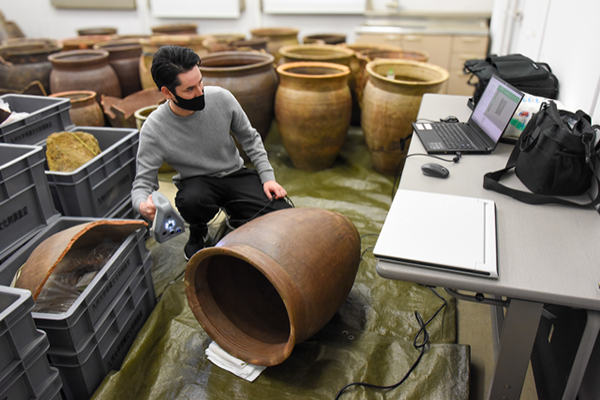
Abstract:
What is a ‘human’? Everything we know about ourselves is built from fragments of our past; objects, bones, and broken traces of our ancestors, but how do archaeologists decipher this information? This seminar begins with an introduction to archaeology as a field, then dives into how digital tools like 3D scanning and computational analysis are transforming it into a data-rich science of human behavior. Drawing from real case studies in the speaker’s work on early technology and human adaptation, this seminar explains how material traces can signal what it means to be ‘human’. When we treat objects not as static relics, but entangled in our history, we can begin to model past lives with new clarity and ask what they reveal about our own future. Featuring hands-on 3D-printed artifacts and an open invitation to think across disciplines, this talk explores the deep connections between the human past and our digitally mediated future(s).
Speaker: Dr. James Frances Loftus (Institute of Science Tokyo)
Speaker bio:
Dr. James Frances Loftus is an Associate Professor of Archaeology at the Institute of Science Tokyo, where he specializes in morphometric statistical and 3D analysis of material cultural heritage. He earned his PhD in Archaeology from Kyushu University, where his research quantified social learning strategies and pottery production during Japan’s ‘Yayoi’ agricultural transition period (~3,000 years ago). Dr. Loftus has published on topics related to Japanese prehistory, computational ceramic analysis, digital archaeology and biological anthropology. Dr. Loftus utilizes his multicultural background and interdisciplinary perspectives in his research and teaching, bridging archaeology and modern digital methodologies to advance the study of prehistory.
Faculty Interview: https://educ.titech.ac.jp/ila/news/2024_12/066779.html
Host: Kosuke Fujishima, ELSI.
Date: Wed. 23 Apr. 16:00-17:00 JST
Venue: Mishima Hall, ELSI
